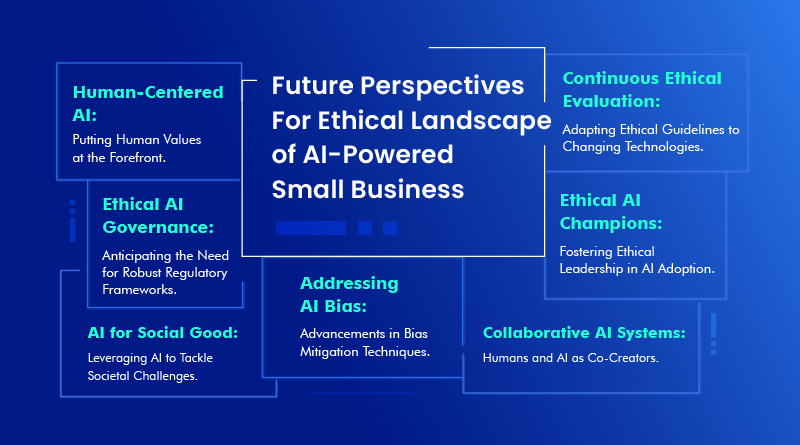Artificial Intelligence entered the online world with a big bang! A lot of industries including finance, education, healthcare, media, logistics, retail and transportation etc heavily invested in the progress of AI.
They anticipated the potential of efficiency that AI integration would bring to their system. Over the past years there has been a global effort to integrate AI in real life processes to increase productivity. Over the period of time, AI expanded into different branches like data mining, machine learning, robotics, and deep learning etc. Such resource intensive applications require a top-notch website hosting service for the better online performance.
Today AI integration is a key performance indicator for different industries. It has significantly increased productivity for these industries by reducing the risk of human error.
While these large players dominate the contribution on integrating AI in their businesses, it is also being used by small businesses to move up the ladder.
Over the recent years, start-up culture has flourished globally. These small businesses are using AI to their advantage by integrating AI powered tools like Chabot’s, virtual assistants, performance enhancers, robotic process automation, and image and speech recognition tools etc. to their business. The major benefit of AI to these startups are the reduced labor cost and increased productivity.
But the question is where does benefit end and bias begins when it comes to using AI? There are a lot of ethical concerns when it comes to integrating AI that especially small businesses have to consider.
Concern for Discrimination
AI is limited to be trained on the data it is provided with. This raises the concern of manipulation of AI algorithms by tweaking the data to your benefit. The vulnerability of AI to the data inputs raises concerns for discrimination. It is true that data interpretation done by AI is much more accurate and has reduced human error and bias. But what if the data that a particular AI model is trained on was corrupted?
If the data includes human biases and errors, it is fairly possible that the AI system will discriminate against a particular group. It is essential for small businesses to ensure that their system is based on diverse data. Another concern is the transparency of AI algorithms. It is highly crucial that businesses are able to explain the decisions based on their AI powered algorithms. This is the only way to satisfy not only customers but also their own employees so that the analysis can be fair.
Privacy Protection
One of the major global concerns related to AI is that it trains itself based on data automatically. When a business integrates AI to their system, they allow their data to be the part of AI training. But how do companies protect customer data then? The privacy concern for customer data is a valid source of concern. Businesses must make sure that they protect the customer data and right to privacy. Any data that is exposed to AI should be done with customer’s consent.
Concern for Originality
The concern for originality is also major for small businesses. AI can be used to get a competitive advantage by generating content powered through AI. This can result in discrimination with the businesses who are true to their content and work through first-hand research. The quality of research also needs to be upheld by these businesses as AI offers an easy way to skip the basic research and publish without any real effort.
Related: How AI Gives The Web Hosting Industry A Winning Edge Over Cybercriminals?
Loss of Job Opportunities
The start-up culture was highly encouraged as it provided employment to a lot of new people. The introduction of AI has resulted in a major shift in the employment trend across the globe. Companies are laying off people and replacing jobs with AI which has resulted in unemployment concerns. A major ethical concern when it comes to AI is the concern for human resources in businesses. Businesses should limit AI integration to an extent and encourage employment culture.
Small businesses should realize that creativity and originality are key performance indicators and help them to build a sustainable brand image. AI cannot achieve creativity as it is limited to the data that it is trained on. AI can be used to boost the creative process by generating queries and pointing marketers in the right direction; however it cannot replace the originality of a human mind.
Concern for Accountability
It is easy to assign blame when the person in action is tangible. The main concern with AI is that it is trained by a vast network of programmers and can integrate itself automatically to form multi-layered platforms and self-learn. This pattern means that it is difficult to trace the problem, find its root and assign blame when it comes to AI. Moral responsibility cannot be assigned when it comes to AI.
Mitigating Bias and Fairness
AI systems are not immune to biases, as they learn from the data they are trained on, which can sometimes contain inherent biases. Small businesses must actively address this issue by regularly auditing and evaluating their AI systems for biases. By implementing diverse and representative datasets during training and testing phases, businesses can reduce the risk of biased outcomes. Additionally, ongoing monitoring and evaluation of AI systems can help identify and rectify any biases that may arise during the system’s operation.
Transparency in AI Decision-Making
When integrating AI into small businesses, transparency should be prioritized. Understanding how AI systems make decisions is essential to maintain trust and ensure accountability. Small businesses should clearly communicate to their customers and stakeholders the ways in which AI is being used, the data being collected, and how it influences decision-making processes. By being transparent, businesses can foster trust and address any concerns related to the ethical use of AI.
Human Oversight and Intervention
While AI systems can automate many processes, it is essential to maintain human oversight and intervention. Small businesses should ensure that there are mechanisms in place to review and validate the decisions made by AI systems. Human involvement can provide checks and balances, allowing for ethical decision-making and addressing any potential errors or biases introduced by AI algorithms. Human intervention also allows businesses to engage in empathetic and context-aware decision-making, which may be necessary in certain situations.
Ethical Responsibilities towards Employees
The introduction of AI in small businesses can lead to concerns among employees regarding job security and the impact on their roles. Business owners must approach this transition ethically by considering the potential effects on their workforce. Transparent communication about the benefits and limitations of AI, along with upskilling and reskilling opportunities, can help alleviate employee concerns. Businesses should prioritize the ethical treatment of their employees throughout the integration of AI, ensuring that human workers are not marginalized or negatively impacted.
Future Perspectives:

Ethical AI Governance: Anticipating the Need for Robust Regulatory Frameworks
As AI continues to advance, there is a growing need for comprehensive regulatory frameworks that govern the ethical use of AI across industries. Future perspectives emphasize the development of guidelines and policies to address emerging challenges such as algorithmic transparency, bias mitigation, and data privacy. Governments and regulatory bodies will play a crucial role in shaping the future of AI by establishing standards and promoting responsible AI practices.
Human-Centered AI: Putting Human Values at the Forefront
The future of AI will witness a shift towards human-centered approaches, focusing on designing AI systems that align with human values and ethical principles. Emphasis will be placed on creating AI technologies that augment human capabilities, enhance decision-making, and prioritize user well-being. Human-centric AI will ensure that technology serves the best interests of individuals and society as a whole.
Collaborative AI Systems: Humans and AI as Co-Creators
In the coming years, we can expect to see increased collaboration between humans and AI systems, where AI acts as a co-creator rather than a replacement. This collaborative approach will harness the unique strengths of both humans and AI, resulting in innovative solutions and improved outcomes. The future holds the potential for AI systems that actively seek human input, learn from human feedback, and adapt their behavior based on ongoing collaboration.
Related: How Big Data and AI Are Contributing To Business Transformation
Ethical AI Champions: Fostering Ethical Leadership in AI Adoption
Ethical leadership will be a key driver in ensuring the responsible and ethical adoption of AI in organizations. Future perspectives envision the emergence of ethical AI champions who champion the integration of ethical considerations throughout the AI lifecycle. These leaders will prioritize ethical decision-making, establish clear guidelines, and foster a culture of responsible AI use, inspiring others to follow suit.
Addressing AI Bias: Advancements in Bias Mitigation Techniques
Bias in AI algorithms will remain a significant focus in the future. To mitigate bias, researchers and developers will continue to advance techniques such as algorithmic fairness, explain ability, and interpretability. Efforts will be directed towards enhancing diversity in training data, reducing biased outcomes, and promoting transparency in AI systems.
AI for Social Good: Leveraging AI to Tackle Societal Challenges
The future will witness an increasing application of AI to address societal challenges and promote social good. AI technologies will be leveraged to tackle issues such as healthcare disparities, climate change, poverty, and education. Ethical considerations will be central in ensuring that AI solutions are deployed responsibly, equitably, and with the goal of benefiting communities and creating a positive impact.
Continuous Ethical Evaluation: Adapting Ethical Guidelines to Changing Technologies
As AI evolves rapidly, future perspectives emphasize the need for continuous ethical evaluation and adaptation. Ethical guidelines and frameworks will need to be agile and flexible, capable of keeping pace with technological advancements. Ongoing assessment and updating of ethical standards will be essential to address new challenges and ensure the ethical use of AI in an ever-changing landscape.
Even though all of these concerns are alarming, they can be solved if dealt with proper precautions. Small businesses can flourish if they use AI to increase their productivity. However this has to be done in a controlled environment where every ethical concern is dealt with.
A lot of small businesses are now using AI integration and achieving high rates of productivity. AI has also enabled a lot of businesses to outsource their services with the help of data integration and migration. Healthcare is one the most active fields in AI integration. Small businesses related to healthcare like medical billing services, front-desk calling services, and appointment scheduling services etc. have utilized AI integration to automate a lot of processes like claim filing, claim reimbursements, insurance eligibility, and credentialing services etc. Billing Freedom is one of the top medical billing companies that is actively using AI integration in their system and are now venturing towards new AI related opportunities like virtual medical assistants.
Businesses need to realize that they should not make their processes completely reliant on AI. AI-Powered small businesses can achieve the competitive edge only if they realize the value of originality along with AI. A collaboration between HR and AI is the best way for these businesses to reach creative productivity through which they can leave their mark in the business world.















